Aircraft Recognition for Royal Navy Gunners 1940
In 1940 the German Blitzkrieg had swept through Western Europe and conquered all in its path. Britain had been ejected from France via the disastrous rout at Dunkirk and it was only a matter of time before the eyes of the Third Reich looked across the English Channel to the one remaining lone Island state that stood in the way of complete capitulation to the Nazi regime in Berlin.
Prior to a successful invasion of England via the proposed (but never used) Operation Sealion, it was recognised that air superiority would have to be gained first. The under-equipped RAF would turn out to be the heroes and the Few, but there was another line of defence; the Royal Navy. The Royal Navy patrolled both the English Channel and the North Sea as part of the readiness for the predicted invasion, but the Royal Navy were slow and on water, a big disadvantage against the highly manoeuvrable flying menace. Add to this that aerial combat between aircraft could be swift and disorienting.
It was therefore imperative that naval crews could identify aircraft as either friend or foe in a split-second; it was potentially the difference between life and death. The Royal Navy therefore created training films to educate naval personnel and this release brings a number of these films together. Collated in their original sequence and unabridged, this release allows you to see the major aircraft of this era through the eyes of trainee naval gunners, gaining identification knowledge on both Allied and German aircraft that could be encountered during this early period of the Second World War.
The films examine fighter, bomber and reconnaissance aircraft and over the range of films includes both well known and not so well-known aircraft types from both sides of the conflict. These aircraft are the following: Spitfire, Hurricane, Blenheim, Defiant, Whitley, Wellington, Hampden, Anson, Hudson, Sunderland, Skua, Albacore, Swordfish, Walrus, Me-109, Me-110, Ju-86, Ju-87, Ju-88, Do-17, Do-18, He-111, He-114, He-115, Blohm and Voss.
It must be said that this release has limited value outside of World War II aircraft enthusiasts, although there may well be interest from general WWII buffs as well. The films are unaltered and presented completely in their original form, one after the other. This means that if you attempt to watch them in one go, it gets a bit heavy going after a while as one plane after the other is presented in both head-on and profile views with rather dry instructional narration and terms such as dihedral which must have been amusing and confusing alike to the trainees watching these films. This is not to say that this is uninteresting though as this really is a piece of history and almost certainly saved lives and made a difference.
Also included are some silent film rushes of a Spitfire from 1944, which is completely unrelated and rather short, but a nice touch nonetheless. Of limited appeal, but nice for those interested in this kind of thing.
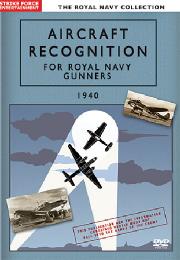
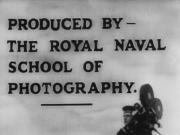
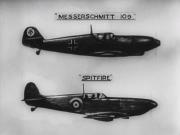
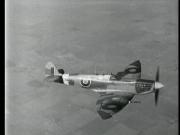
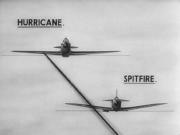
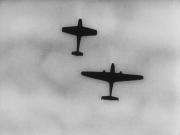
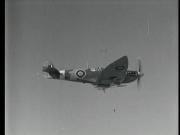





































Your Opinions and Comments
Be the first to post a comment!